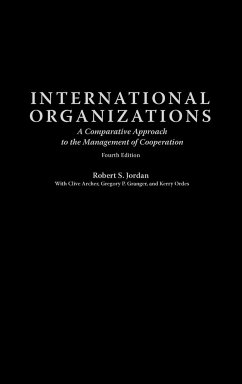This new edition of a classic text, comprehensively revised throughout, appraises the emerging challenges to the centrality of the nation-state international system, such as humanitarianism, environmentalism, new international legal standards, and concepts such as civil society and globalism. As inter-governmental and international non-governmental activities are increasingly being blended, for example in the area of peace-keeping, this poses a challenge to the sanctity of the territorial state as the primary political unit. Similarly, technological and social changes such as the emergence of the Internet, encourages borderless activities (both legal and illegal) by non-state actors. This book provides the basis for students to consider a thorough rethinking of our international system and its prospects for the future in the face of these fundamental and unprecedented developments. While the book as a whole is built around the unifying theme of the management of cooperation, illustrative cases enhance the individual chapters and provide the basis for comparative analysis and discussion. These take the reader through the tangled webs of international cooperation in such areas as the European Union, NATO, humanitarian intervention, arms control, transnational criminal organizations, and global environmental issues. Discussion questions at the end of each chapter add to the usefulness of this text for students.
Hinweis: Dieser Artikel kann nur an eine deutsche Lieferadresse ausgeliefert werden.
Hinweis: Dieser Artikel kann nur an eine deutsche Lieferadresse ausgeliefert werden.








